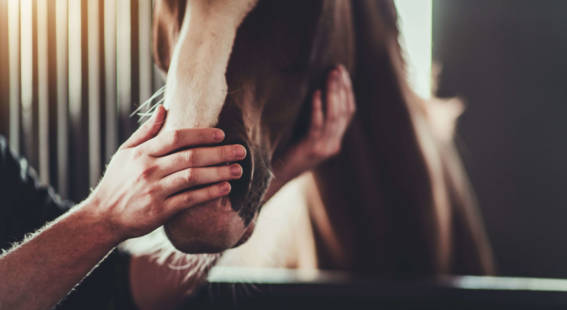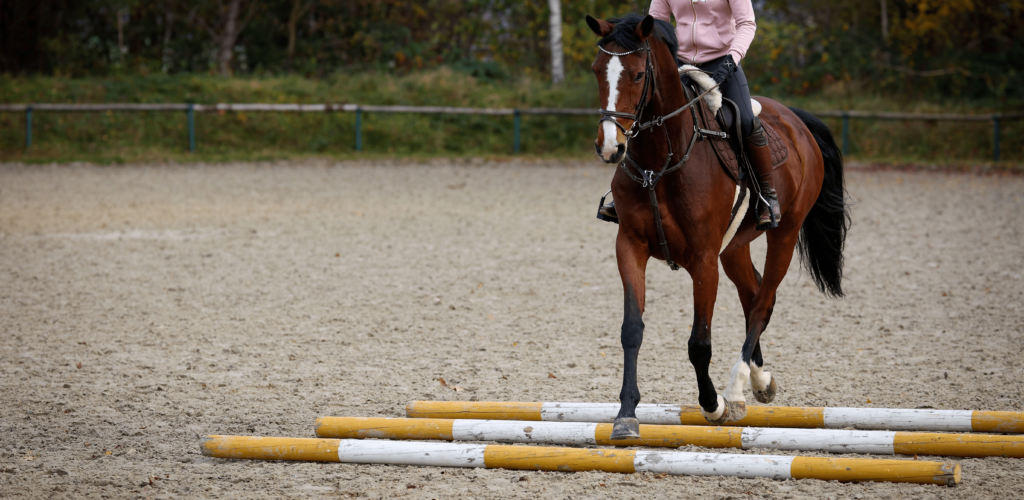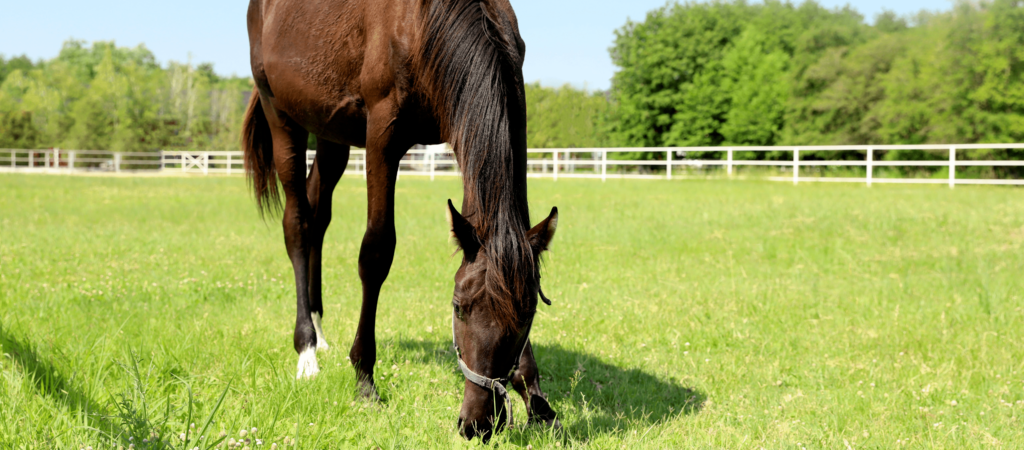Wednesday 1st February, 2023

All relationships need nurturing, from our human relationships to those with our four-legged friends. Horses are wonderful pets to own and they give us so much joy in return. That’s why it’s good to make time to reflect on your relationship with your horse. Can you improve your current relationship and if so, where should you begin?
Don’t worry if you are struggling with ideas. We have put together some helpful tips to consider to ensure that you and your horse can create and (mane-tain) a happy relationship.
Looking after your horse is hard work, no doubt about it. Often there are so many tasks to complete from the moment you arrive in the yard that it’s easy to not make time for the small things.
Whilst doing the basic tasks such as catching, brushing and feeding your horse is a necessity – you want to avoid being viewed as the ‘precursor of the task’. If your horse doesn’t especially enjoy catching or brushing for example, then it’s easy to see why your horse may avoid you (if this is your main way of interacting with each other).

You can encourage and strengthen the bond with your horse with a little TLC. This can be from the smallest of things from doing nothing with your horse or having a conversation to discovering how our horse likes to be petted.
Some love a scratch, whereas others prefer a soft gentle touch. A good scratch or gentle stroke releases endorphins and pleasure chemicals into the brain of your horse and creates a positive association with you and therefore strengthens your bond. So whilst you work on getting the brilliant basics sorted don’t forget about those magic touches.
Positive reinforcement is a powerful tool to help strengthen the bond with your horse. Just like behaviours in humans, we respond better to positive reinforcement of tasks rather than being torn down or receiving negative comments. If we praise people for doing a good job, not only are we more likely to keep doing tasks well – but we are more likely to like the person who is giving us this positive affirmation. Horses are no different.
Positive reinforcement training in horses could be through using rewards such as their favourite snacks, praise, strokes or clicker training. As a result of using these techniques, your horse should learn faster and feel more positive towards you. Gone are the days of having to pressure, poke, prod or punish your horse – positivity and praise means a happier and healthier horse (no foaling around here)!
Even if we aren’t in the mood to exercise most of us will feel better for moving. We feel less sluggish and more energised. Exercise for your horse can come in many forms from walking, riding and agility work to rehab exercises from the physio, should your horse need it.
Walking with your horse is a great way to develop your special bond. You learn to trust each other and it gives you the perfect chance for some one-on-one time without the intensity that riding can bring. You can encourage good behaviour whilst walking with your horse by giving them a little treat along the way to show you really care.

Agility training could include setting up challenges in the paddock. Who doesn’t love an obstacle course?! This is great to keep your horse entertained and to develop their problem-solving skills.
Finally, rehab exercises are hugely important when trying to get your horse back to full health and it also builds up the trust between you both. Your horse may need assistance when it comes to stretching out a tight muscle and although it might be a little tender for your horse at first, they will definitely appreciate your efforts here.
Work hard – play hard! Reward yourself and make time for the fun stuff – there should always be a little time for ‘horseplay’!
Play is great for spook busting and preparing your horse for loud noises. This can be done by playing with toys, interacting with objects or overcoming different obstacles that you set up in your area. To know if your horse is happy when playing, look out to see if their nostrils are soft, round, relaxed and breathing is even on both sides. Your horse’s tail will swing freely, evenly and loosely when happy and relaxed.
We are all so busy in our lives and as a result of this, there never seems to be enough hours in the day to get through our to-do lists. However, horses love to chill out and so do we! Create moments in your week where you can schedule 10 minutes here or there to really chill out with your horse. Not only will this help slow you down and relax but your horse can enjoy being around you in a peaceful setting.

Watch your horse graze from a distance or relax around the paddock. This is a great opportunity to watch your horse’s behaviour and get to know each other even better. Where’s their favourite place to sleep and eat? Do they interact with the other horses and who are their favourites? These little pointers are great to note and help you recognise if something is not quite right with your horse.
There’s no place like home!
By assessing your horse’s behaviour you will know what your horse enjoys and can therefore create a comfortable environment for them to relax in with us at Vale Stables. There’s nothing better than being in a dry, warm and comfortable home!
Vale Stables provides internal and timber stables as well as mobile field shelters which are designed and built to last and provide essential shelter for your horse. Mobile stables are custom-made to suit your needs. Plus, you can discuss the designs with our experts to ensure you have the best product available.
To find out more about Vale Stables and our products to help you provide the best environments for your horse, contact us by calling 01789 766 533 or emailing office@valestables.com